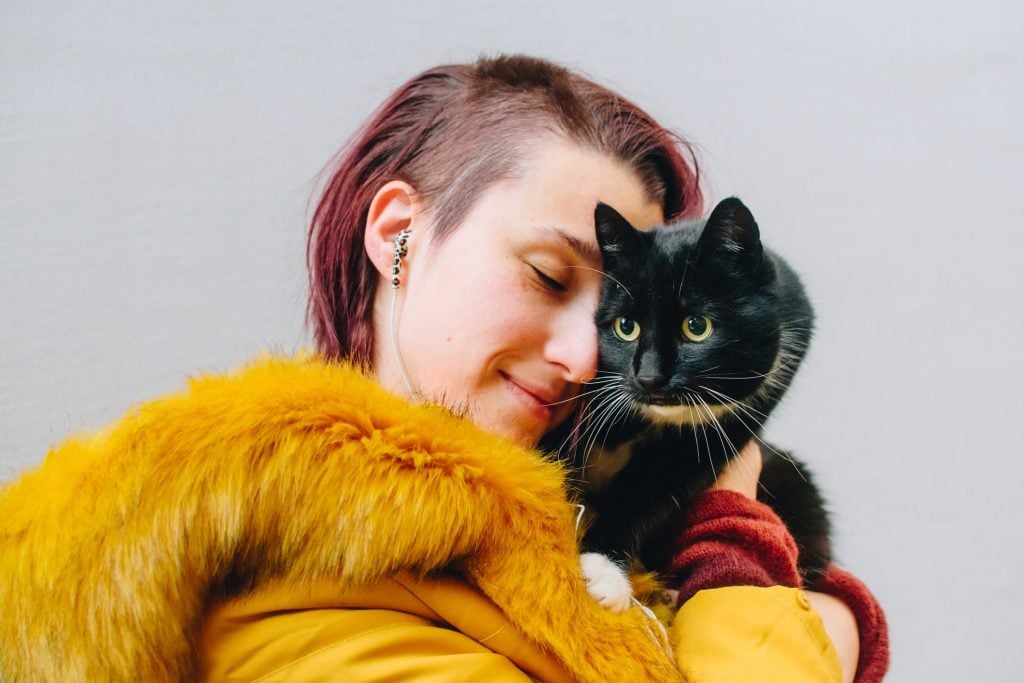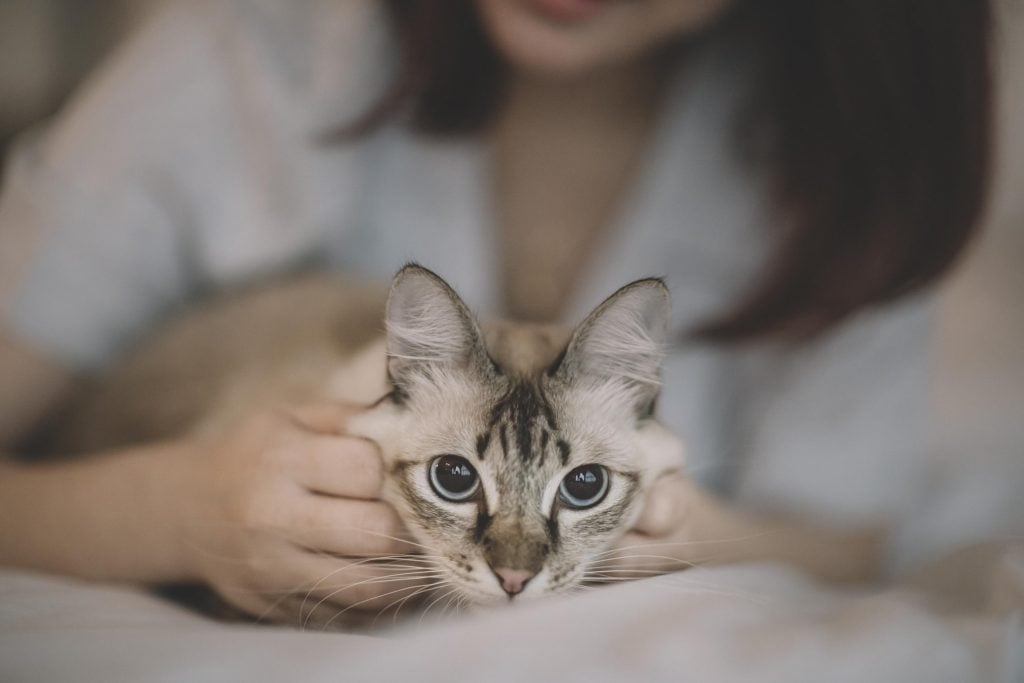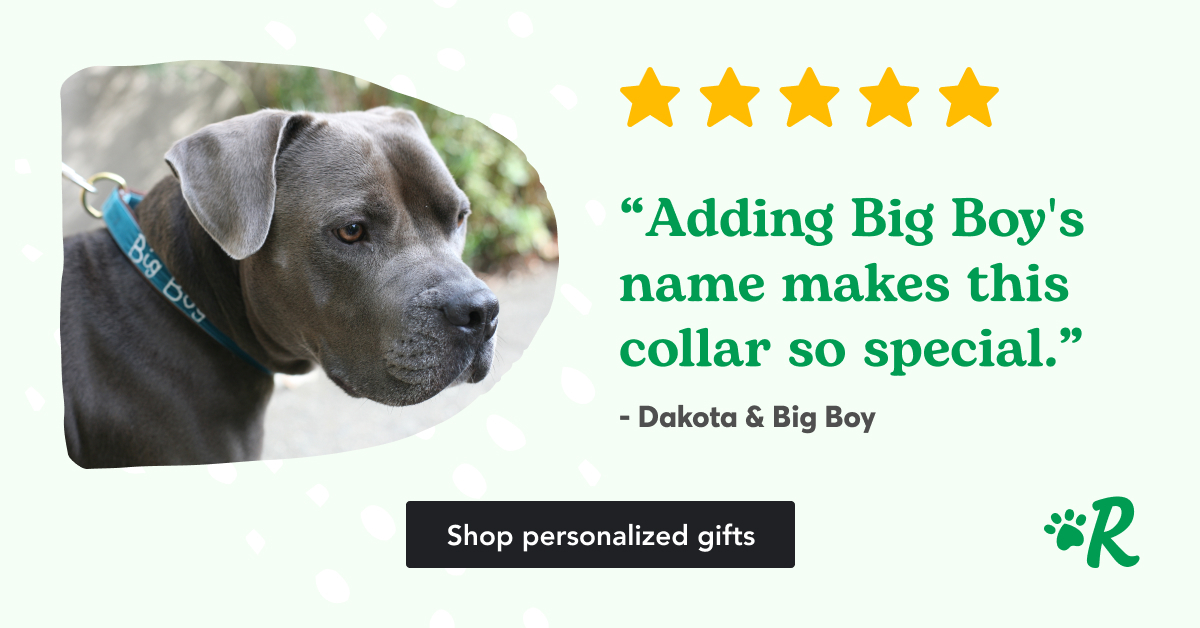- Not a substitute for professional veterinary help.
“My, what large eyes you have,” I once said to my cat (who didn’t respond). Experts say you can learn a lot about how your cat is communicating with you through their body language, like a flick of their tail or a rub against your leg. But have you ever stopped to think what their eyes might tell you? My cat was a vault, she wasn’t saying a peep about why her eyes were the size of saucers. So, we asked the experts who explained that there is more than one reason why your cat’s eyes might be dilated.
Reasons for Dilated Cat Eyes
A cat’s eyes can dilate for a multitude of reasons, from harmless playtime to more serious conditions such as stress or anxiety. Below, we explore some common reasons for cats’ eyes being dilated.
Your Cat Is Playing
“During play, cats can undergo emotional arousal, which can be from play, stress, or fear,” explains Dr. Kat Pankratz, DVM, DACVB, veterinary behaviorist at Animal Behavior Clinic in Portland, Oregon.
As your kitty prepares to pummel her favorite mouse, her sympathetic drive (aka “fight” or “flight”) kicks into gear, Pankratz continues, and “the pupils dilate to allow more light to enter the eye and allow them to see and respond more.”
All this means is that kitty is just keeping her eye on the prize!

Nevena Ristic/iStock
Your Cat Is Trying to Get a Better Look
In low-light situations, cats can dilate their pupils to see better.
“They have a special reflective layer called the tapetum lucidum that allows them to reflect more light to the back of the eye,” say the veterinary experts at Texas A&M. Dilation of the eye doesn’t mean your cat can see perfectly in the dark, but they can see better in the dark than humans and many other animals.
Your Cat Is Stressed or Anxious
Similar to your cat’s reaction to her favorite mouse, her “flight” or “fight” can also active when she’s feeling stressed or anxious. To help clue you in that your cat is experiencing a negative state of excitement, PetMD says to look for these signs in addition to dilated eyes:
- Tail flicking
- Increased respiratory rate
- Holding their tail tight against their body
- Crouching and leaning away
- Trying to escape or completely freezing in place
- Holding their ears back
- Hair standing up
- Aggression
Cats can feel stressed or develop anxiety for numerous reasons. If your kitty shows signs of continued stress or anxiety, it’s best to take notes of any changes in their routine, environment, or other aspects of her daily life and consult your vet.
Your Cat Is Frightened
Fear of the unknown is very real for humans and feline friends alike. Your cat might be scared of an unfamiliar human, animal, sound, or even an object, once again ramping up her “flight” or “fight” instincts. If her eyes are dilated and she’s showing the following signs, PetMD says something might be spooking your fierce feline.
If it’s an unfamiliar object or person that has your cat on edge, you can use desensitization training to calm her nerves. Gradually expose her to the scary object while simultaneously giving her something she loves, like her favorite treat.

scaliger/iStock
Your Cat Might Be Sick
While cat’s eyes dilate for a variety of normal reasons, there are some that can indicate a serious health condition. A cat’s pupils should become thin in bright, well-lit environments; if your cat’s eyes constantly dilate and are accompanied by other symptoms of an illness, contact your veterinarian right away. Dilated cat eyes could be indicative of the following illnesses.
- Dysautonomia
- Trauma
- Toxicity
- Infectious diseases like a parasite or feline infectious peritonitis (FIP)
- Optic nerve damage or disease
- Cancer
Your Cat Has Anisocoria
If your cat’s pupils are two different sizes, it’s not a magic trick. Unequal pupil sizes in cats is called anisocoria, and it’s a sign that your cat should visit the vet. “Control of pupil size is a complex interplay between the eye itself, nerve pathways, and the brain. So, abnormalities anywhere along this chain of command caused by trauma, strokes, infections, or tumors can lead to pupils of different sizes,” says Dr. Rebecca Greenstein, Rover Dog People panelist and Chief Veterinarian at Kleinburg Veterinary Hospital in Ontario, Canada. In other words, unequal pupil sizes isn’t a disease itself, but indicate an underlying condition.
Does Catnip Dilate a Cat’s Eyes?
Sure does. About 50% of cats are affected by catnip, or rather a substance in catnip called nepetalactone. For those lucky 50%, nepetalactone causes a “kitty high” and pet parents might notice dilated pupils, increased playfulness, and maybe even drooling. The effects of catnip typically wear off in about ten minutes, returning your kitty to their usual catnap routine.
What Should My Cat’s Eyes Look Like When She’s Resting?
Let’s just say, there’s not really a “normal” when it comes to the size of a cat’s eyes. Factors as minuscule as ambient light in the room or any stimulus that triggers the sympathetic nervous system can cause your cat’s eyes to dilate. Basically, there’s a range of normal for a healthy cat, and it all depends on the context of the environment and other body language, Dr. Greenstein says.

Edwin Tan/iStock
The Takeaway
The size of your cat’s eyes can vary depending on many factors, and getting to know your cat’s other body language can help you decipher what’s going on behind those big green eyes. “It’s more a of potential concern if your cat’s eyes are constantly dilated regardless of the light level or situation, or if you notice any concurrent changes in vision or additional unusual changes to their overall health,” Dr. Greenstein says. If you’re unsure or worried about your cat’s health, it’s best to seek advice from your trusted veterinarian.
